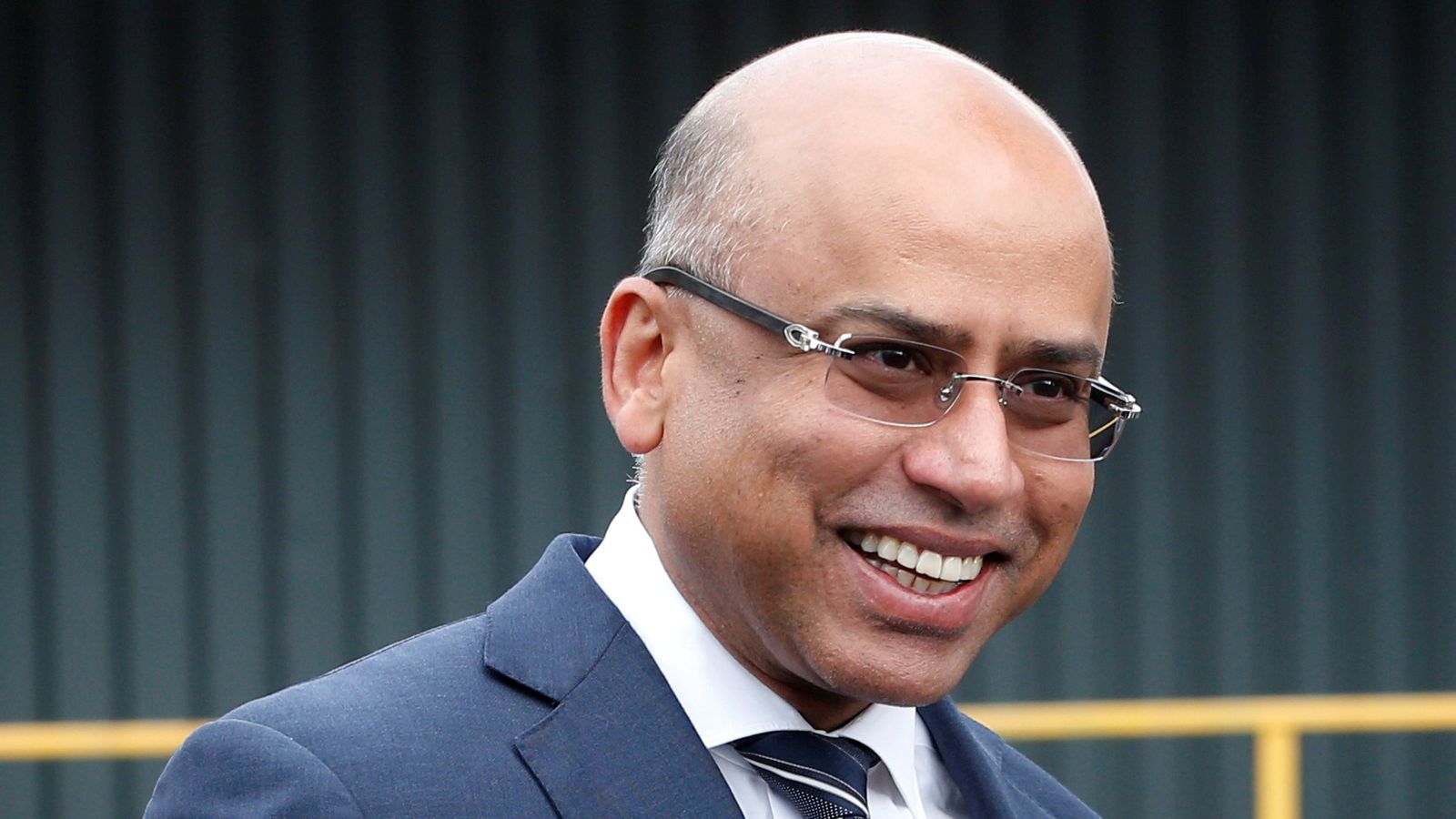Liberty Steel tycoon Sanjeev Gupta has promised thousands of UK workers facing uncertainty after the collapse of lender Greensill that he will not close any of its plants.
In an interview with Sky News, Mr Gupta gave a bullish assessment of prospects for the business – while admitting the collapse was a “shock to the system”.
He said his business empire had already been in the process of switching away from Greensill as a source of financing and that his only regret was not doing so earlier.
In comments directed at Liberty Steel’s 3,000 UK workers, Mr Gupta said: “I will not give up on you. You are my family.
“Under my watch, none of my steel plants will close, I promise.”
Liberty Steel is the UK’s third-largest steel producer while its parent company, Mr Gupta’s GFG Alliance, has a further 2,000 UK staff working in the aluminium and renewable energy sectors.
Sky News revealed last week that GFG had asked ministers to approve an emergency funding of up to £170m.
Mr Gupta denied that his business had been seeking a bail-out but conceded that “given our situation every help is welcome” and that it would “continue to have positive dialogue with the government”.
The tycoon has been described as the “saviour of steel” after picking up a number of plants that were offloaded by previous owners as the industry faced a squeeze from the threat of cheap Chinese imports and soaring energy costs.
Liberty now controls 11 sites Rotherham and Stocksbridge in south Yorkshire, Newport in South Wales and Hartlepool.
Speaking to Sky on Thursday, Mr Gupta played down reports that creditors were seeking winding up orders – saying that it made no sense for them to bring down the business and that he would work with those lenders, but if necessary fight any court action.
“This is a shock to the system – there’s no denying that,” he said.
“And we are handling the situation as it has arisen, but we need to keep in mind that our business actually is enjoying one of the best times it’s ever had.”
Mr Gupta insisted on the viability of the business, pointing to high steel and aluminium prices and saying that globally it was doing “extremely well”.
